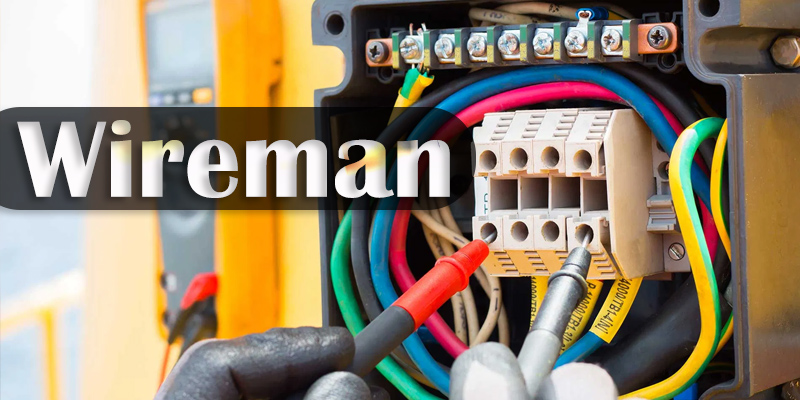Stories you may like
Wireman
A Wireman, often referred to as an electrical wiring technician, is a skilled professional specializing in the installation, maintenance, and repair of electrical wiring systems in residential, commercial, and industrial settings. This role is critical in ensuring that electrical systems are safe, compliant with regulations, and function efficiently. The expertise of a Wireman typically extends beyond mere installation to encompass a deep understanding of electrical theory, blueprints, and schematic diagrams. This knowledge allows for the effective planning and execution of complex wiring projects, taking into account factors such as load calculations, circuit design, and safety protocols.
Moreover, a Wireman must stay abreast of evolving standards and electrical codes to ensure all work aligns with the latest regulations and technological advancements. This continual professional development is crucial, given the rapid pace of innovation in electrical components and systems. Additionally, Wiremen often collaborate with other trade professionals, such as architects and engineers, to integrate electrical systems seamlessly within broader construction or renovation projects. Their role is indispensable in both new constructions and in the upgrading of existing infrastructure to meet modern requirements.
What Does A Wireman Do?
How To Become A Wireman?
Wireman Career Paths
A career as a Wireman involves specializing in the installation, maintenance, and repair of electrical wiring systems in residential, commercial, and industrial settings. Aspiring Wiremen generally begin their journey with a high school diploma or GED, followed by entering a trade school or technical program that offers specialized training in electrical systems. Many also complete apprenticeships, which provide hands-on experience and mentorship under the guidance of experienced professionals. Key skills for Wiremen include a thorough understanding of electrical codes and safety regulations, dexterity, problem-solving abilities, and attention to detail.
Upon completing education and training, individuals typically start as journeymen, working under the supervision of licensed electricians. With experience, they can attain master electrician status, which opens doors to more complex projects, higher pay, and the ability to supervise and train apprentices. Some Wiremen may choose to specialize in particular areas such as automation systems, renewable energy installations, or data communications. Continuous learning and certification are essential in this field to stay current with evolving technologies and standards. This career path not only offers stability and progression but also the satisfaction of contributing to the safe and efficient functioning of electrical systems critical for modern living.
-
Install electrical wiring, systems, and lighting fixtures in buildings, according to blueprints and schematics.
-
Inspect and test electrical components to identify problems and repair or replace wiring, equipment, and fixtures.
-
Ensure all work adheres to relevant codes and safety standards, and follow rigorous safety procedures.
-
Use a variety of testing devices to diagnose electrical problems and find solutions.
-
Work with various electrical components such as transformers, circuit breakers, motors, and control panels, including PLC, VFD, and HMI systems.
-
Work with other team members, contractors, and project managers to complete projects.
-
Connect electrical networks to power sources and work with backup power systems and power outlets.
- Technical skills: Ability to read and interpret blueprints, schematics, and wiring diagrams.
- Tools and equipment: Proficiency in using hand tools and power tools for electrical work.
- Physical ability: Ability to perform physical tasks like lifting heavy equipment, climbing ladders, and working in various weather conditions.
- Problem-solving: Strong diagnostic and problem-solving skills to identify and fix electrical issues.
- Safety awareness: A thorough understanding of electrical safety codes and procedures.
- Attention to detail: Precision and careful attention to detail are crucial for ensuring safe and correct installations





User's Comments
No comments there.